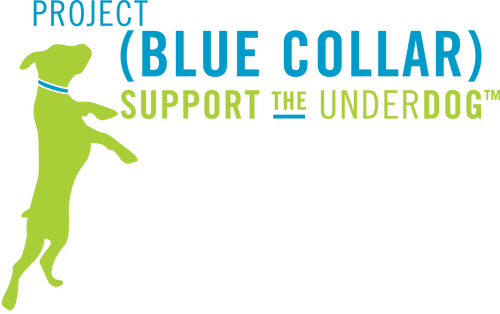As a part of our commitment to giving back to rescue groups, we select two organizations every month to be the recipient of our Buy One Give One (BOGO) program.Our BOGO program is based on online sales from two of our leash and collar collections (I Am A Rescue or Support The Underdog). For every collar/leash purchased from these collections, one is donated to a rescue group.
We are thrilled to announce that the Wisconsin German Shorthair Pointer Rescue is our BOGO recipient from August 1 - 15. WGSPR is celebrating its 10th anniversary, so we're happy to help them out and commemorate their founding! WGSPR saves German Shorthaired Pointers (GSPs) from shelters, humane societies, and owner surrenders in Wisconsin and the upper peninsula of Michigan. Their dogs are placed into foster homes to be loved, nurtured, trained and in some cases nursed back to health while they find the perfect permanent home and loving family for them.
We asked WGSPR's director Terri Roehrig some questions about WGSPR and what the role of a breed rescue is in the world of animal shelters and rescue groups.
PBC: Tell us a little bit about WGSPR.
Terri:We are one of the smaller GSP rescues in the Nation. Our surrounding sister GSP rescues save 100 or more GSPs a year. While we do focus on the purebred dogs, we do take in GSP mixes, and GWP or GWP mixes, English Pointers and Pointer Mixes. It is about the dog and the situation they are coming from, along with available foster homes that help us make our decision to bring a dog in. We partner with our surrounding state GSP rescues and help each other out when one rescue has more intakes than foster homes, we help were we can. 90-95%% of the GSPs we rescue are purebred, the rest mixes.
PBC: Tell us about the German Shorthaired Pointer breed.
Terri: WGSPR is affiliated with the National GSP rescue which is sponsored and supported by the GSP Club of America. We are also supported by the WI GSP Club.Since the GSP is a special sporting breed that need lots of exercise and mental stimulation, they end up needing rescue because they are too much to handle for some people. They are a very versatile dog but need their energy worn off daily or they can start exhibiting destructive behaviors. Many times an owner who is not familiar with the breed will get a young dog and not realize how much work they are - yes they are work - they need to be exercised for 1-5 hours/day depending on age. Yes! 1-5 hours. If they are young or even old - you can't wear them out! Mental stimulation helps as well - lots of mental stimulation. GSPs need a job - daily. They are excellent swimmers as well. One of the rare breeds that have webbed feet.
Donate a PBC collar or leash to WGSPR when you get one for your dog!
Check out our Buy One Give One (BOGO) collections here.





Comments (0)
Back to Blog